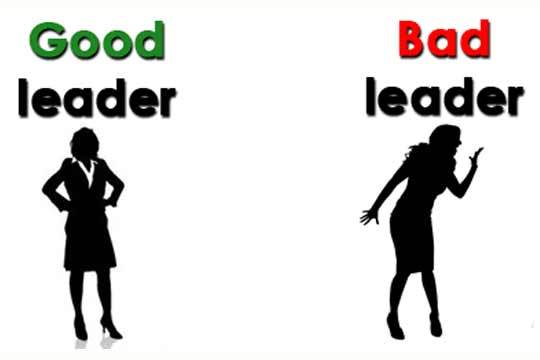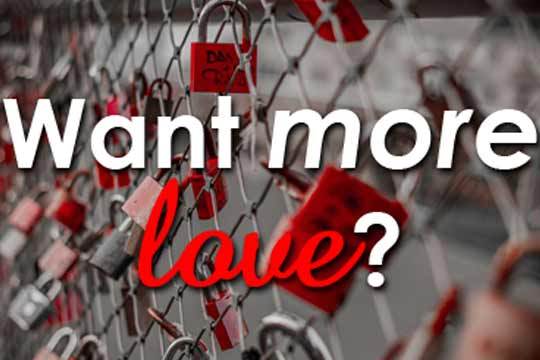Helene Lerner's Blog, page 54
February 17, 2016
5 Differences Between Good and Bad Leaders
 I talked yesterday to a friend who was excited about how his work was going. Most of the conversation centered around what a great manager he had. Because everything rises and falls upon leadership, let’s take a look at some key differences between good leaders and bad leaders.
I talked yesterday to a friend who was excited about how his work was going. Most of the conversation centered around what a great manager he had. Because everything rises and falls upon leadership, let’s take a look at some key differences between good leaders and bad leaders.
Bad leaders only tell you “what” to do
Good leaders share the “why” behind the “what”
Bad leaders are out to get every ounce of work they can from their team without explaining the why behind the task or project. Good leaders inspire you by discussing “why” they are giving you a task or project and why you’re the best person for the job. Good leaders also help you see how what you do fits into the strategy and objectives of the entire team and company.
Bad leaders play the blame game
Good leaders take responsibility
Bad leaders talk in terms of “You” when a mistake is made or when a project fails. Someone is always at fault for something but it’s never them. Bad leaders will be heard saying “You should have seen this coming and prevented it.” Bad leaders will never be heard saying, “I should have seen this coming and helped you with it, I’m sorry.” The bottom line is good leaders say “You” when things go right and when things go wrong they say “I” or “We.”
Bad leaders just don’t care
Good leaders care
Bad leaders care about getting the outcomes they want, not about you. If you make a mistake they’ll call you out publicly without any regard for your dignity. If you’re having personal problems they’ll be quick to tell you to leave your problems at home. Good leaders won’t give you a pass and accept poor work from you when you’re having a hard time in your personal life, but they will listen and help you any way they can. They don’t just care about the work you do, they care about the person doing the work.
Bad leaders give you the solutions
Good leaders help you find your own solutions
Bad leaders are often incredibly smart and competent. The problem is their strengths become their weaknesses because they need to be the smartest person in the room. Good leaders care more about your learning and development, and because of that they ask you questions that help you to find your own solutions. Good leaders want you to discover how smart and resourceful you are more than they want to impress you with how much they know.
Bad leaders don’t want to know what you think
Good leaders are always asking your opinion
Bad leaders don’t ask for your opinion because if they wanted you to have one, they would give it to you. They think it’s their job to have the ideas and the answers and they think it’s your job to do what you’re told. Good leaders often ask for your opinion and ideas because they know that no one person is as smart as the entire team. Good leaders won’t always agree with you or implement your suggestion but they always encourage you to speak up and share what’s on your mind.

- Alan Allard, Creator of Enlightened Happiness
 3 Things That Make TRUE Leaders Stand Out
3 Things That Make TRUE Leaders Stand Out
February 16, 2016
4 Ways To Get Over Jealousy That Is Holding You Back
 You like Tori. You just didn’t expect her to get the promotion you wanted.
You like Tori. You just didn’t expect her to get the promotion you wanted.
You appreciate Josh. Or, at least you did until last week. It still stings that he upstaged you when you both spoke in front of the senior management team.
When Susan asked you to join her after work for an impromptu dinner celebration, you said “sure.”
“So, what are we celebrating?” you asked as you slid into the restaurant booth. When she told you the size of her raise, you lost your appetite.
You’ve been bitten by the green-eyed monster.
Left unchecked workplace jealousy erodes job satisfaction. It can prompt you to do regrettable things, from making snide remarks that tarnish your reputation to treating a talented coworker badly, harming a work relationship that could help you in the long run.
If you find your emotions tied up in knots by workplace jealousy, try these strategies.
Own it
If you shove feelings, even dark ones, down, they fester. You may not want to admit to an inner cringe when good things happen to someone else; however, until you own your jealousy, it often owns you.
Accept your disappointment, insecurity or hurt. Hold your feelings up to the light, talk to yourself about them and listen. You’re your best friend. When you let yourself feel them, feelings dissipate like a dark cloud turning to gray mist.
Identify the trigger
What triggers your jealousy? Does someone else’s success have implications for your career?
Often, jealousy masks fear – of losing out because there isn’t enough to go around or of being left behind when others excel. Unravel the fear, and jealousy dissolves.
Even if a coworker got an opportunity you wanted, it isn’t the only opportunity out there. Might you have the same opportunity in six months, or elsewhere? Perhaps it’s time to move on. By reassessing the situation and taking action, you reaffirm your own future.
Don’t self-trigger
Someone else’s job fortunes can soar, only to crash a year later. Don’t measure your success against what anyone else does or has, because you can always find someone else to compare to who has more or does better at something.
You have your own career path. Don’t let a missed opportunity make you feel worse about or angry at yourself. Instead, consider what you’re great at, and how you can make your next success happen. What will you find? – positive emotion shoves out negative emotion.
Move forward
Congratulate the person who got the promotion or raise. Don’t indulge in snarky, behind-her-back comments or give her the silent treatment, either of which make you look petty. If you show support, instead of spite, toward a coworker star, she may gratefully work to boost your success.
Don’t let another’s success get you down. Use it to inspire and challenge you. Let those who succeed serve as role models and learn from what they did or how they did it. If someone less talented won an opportunity you wanted, ask yourself what you need to do differently to be recognized and rewarded. Did a peer upstage you? Redouble your efforts and power forward.
Has the green-eyed monster bitten you? Tell yourself, that was then, this is now.

© 2016, Lynne Curry, professional coach and author of Solutions and Beating the Workplace Bully. Follow her @lynnecurry10 or onworkplaceocoachblog.com.
 7 Strategies to Avoid Letting Horrible Bosses Take You Down
7 Strategies to Avoid Letting Horrible Bosses Take You Down
February 15, 2016
5 Things A Confident Woman Does NOT Put Up With
 We all have a confident woman inside of us, our inner crazy-in-love Beyoncé (Thank you, Mindy Kaling). Sometimes we may lose sight of her as we try to stay afloat in these muddy urban waters, and we forget she is there until we are suddenly faced with that situation – the one that makes us spring to attention and go, "oh no, hell no! "
We all have a confident woman inside of us, our inner crazy-in-love Beyoncé (Thank you, Mindy Kaling). Sometimes we may lose sight of her as we try to stay afloat in these muddy urban waters, and we forget she is there until we are suddenly faced with that situation – the one that makes us spring to attention and go, "oh no, hell no! "
When people don’t give you a straight answer
This is one of my favorites (and closely interlinked with my article on passive-aggressive coworkers) because there is just so much of this in the office! Whether it’s your team member who won’t take ownership or your friends being non-committal about plans, you know when you have heard enough to say "oh no, hell no!" The next time around, the person you called out for their behavior is likely to think twice before trying to pull that again with you.
When people are condescending
This can make a woman with a lot of ego see red. We face condescension from people who think they know better, look better, do better – whether it’s true or not. But a successful woman knows just how to nip it in the bud. It might be by putting the person in their place, or drawing attention to the attitude that is not appreciated, or simply choosing to exit a situation. A confident woman knows she won’t put up with that, and it certainly doesn’t make her feel bad.
When people underestimate you
When you are underestimated, the result can be overachieving to make a point or underachieving because who cares anyway? Neither of these are what a confident woman chooses. An accomplished woman doesn’t take it personally – another person’s opinion is just that, an opinion. She won’t let another person define what her skills or talents are! She is grounded in her self-worth and in the end, she will show them through her work and actions.
When she can make a difference
Watching a peer getting overlooked time and again? A powerful woman doesn’t need to be asked to step in to rectify a situation. If it means coaching the peer or ensuring their voice gets heard too, she can take charge. This woman is a force to be reckoned with, and will not hold back. She understands her efforts, attention, and words are the difference.
When she isn’t getting paid what she deserves
While charging in and demanding money tomorrow morning might not be the best approach, a confident woman knows how to strategically plan, network, and negotiate to get paid what she works hard to deserve. Compensation is not based just on education and technical skills – it rewards professional background, experience, network, management skills, and more – so don’t waste time justifying the fact that you are actually underpaid. The confident woman wouldn’t either!
So what in your life has made you sit up, take notice, and say, ‘Oh no, hell no!? Let’s share and empower each other!

- Leena Roy, CFA/CPC is a Professional Coach for Managers. A program designed to elevate and empower Mid-level Managers & Professionals to achieve their highest potential. You can follow her on Twitter @CoachLeena or on Facebook.
 5 Things A Successful Woman Does When She Does Not Know
5 Things A Successful Woman Does When She Does Not Know
4 Ways of Getting Rid of Unproductive Guilt
 Far too many moms worry full-time (or at least part-time!) about “neglecting” their children because of work. This doesn’t help matters and makes them feel worse. Here’s how to get a handle on the Guilt Trap!
Far too many moms worry full-time (or at least part-time!) about “neglecting” their children because of work. This doesn’t help matters and makes them feel worse. Here’s how to get a handle on the Guilt Trap!
Make your own rules
The bottom line is moms who work outside the home feel guilty because they’ve been taught to feel guilty, not because they have something to feel guilty about. Our society has been making shifts in what's considered to be the accepted roles of men and women but it's taking too long. You don't have to wait for society to change the rules. Make your own.
Observe your guilt and fears
Too many of my female clients have told me, “When I’m at work I’m thinking of my children but when I’m home with them I can’t get work off my mind.” If you’re feeling guilty for not being at home while you’re at work and you’re feeling you should be working when you’re at home, that’s fine for now. Begin to notice the times you feel guilty or afraid you’re short-changing either your kids or feel bad for not getting all your work at the office done. Practice saying, “That’s interesting, I just had another guilt attack.”
Don’t criticize yourself
Take the accusing voice telling you what you’re doing wrong and turn it into a supportive voice telling you what you’re doing right. If you’re thinking about a time you weren’t able to be at one of your kid’s school events, replace it with a mental movie of a time or two when you were able to be at their event. You have to tell your brain what you want it to focus on. The first scenario won’t help you continue to be the great mom you already are; the second one will. Choose that one.
You’re not alone
Who doesn’t feel guilty—most of us do. But if we support each other by reaffirming that we are doing the best we can, very imperfectly, we can develop a new habit, namely letting go of guilt sooner.

- Alan Allard, Creator of Enlightened Happiness
February 14, 2016
3 ways to feel better about yourself without that special someone

Valentine's Day--somehow we get the message that something is wrong if we aren't in a relationship. But nothing is wrong with us, we just haven't found the "right" one, or we choose not to.
Here are 3 ways to instantly feel better about yourself when you find yourself without that special someone.
1. Be your own good partner Endorse yourself for all you do right--and there are a lot of things.
2. Go where it's warm Who are the friends that honor you? Make sure you speak with one of them when the pangs of loneliness strike!
3. Remember the truth You are being selective--the right one isn't here yet. You are holding out for an equal. You don't "need" someone just for the sake of dating.
February 12, 2016
5 Reasons Girlfriend Therapy is the BEST Therapy

1. They know everything will be OK.
Often what we need from someone close to us, when we’re going through a hard time, is the assurance that it won’t last forever. They also know when you’re being too hard on yourself and can give you a reality check. They’re there to push you when you need it and reassure you in down times that you’re not alone.
2. They keep you real.
In her book, Daring Greatly, Brene Brown writes on the strength of vulnerability. When we allow ourselves to be vulnerable, we open the door to love, belonging, joy, accountability, and authenticity. Having great girlfriends around you that you can talk openly with allows you to be vulnerable. It forces us to own our feelings and reflect on them.
3. They empower you.
There’s a reason why Taylor Swift’s squad is all we can talk about. Having a group of strong females together is powerful. They allow us to feel connected and own our strength. That feeling of empowerment and security can push us outside our comfort zone and dare to live fully.
4. They make you smarter.
Spending time with good friends may even make you sharper! Gurinder S. Bains, a Ph.D. candidate at Loma Linda University recently conducted a study which found that incorporating time to laugh by spending time with friends may enhance our learning ability.
5. They don’t cost you any money.
What’s not to love about getting great advice from people you love, for FREE? Aside from the free retail therapy that accompanies closet sharing!
 5 Ways to Boost Your Mood When You Are Feeling Down
5 Ways to Boost Your Mood When You Are Feeling Down
3 Surprising Benefits of Cuddling
 Why do we love cuddling so much? There are some surprising benefits...
Why do we love cuddling so much? There are some surprising benefits...
1. Touch stimulates Oxytocin, which makes you feel safe
Oxytocin is often called “the cuddle chemical” or “the love hormone” but it’s useful to know how it works in animals. Oxytocin rewards a gazelle when it has the safety of a herd, and a baboon when it grooms the fur of a troop mate. Natural selection built a brain that rewards you with the good feeling of oxytocin when you create social trust.
2. Cuddling helps you sleep like a baby
Oxytocin is your brain’s signal that it’s safe to let down your guard. The mammal brain lowers its guard in the safety of a herd or pack or troop because the burden of vigilance is distributed over many eyes and ears. Mammals surge with oxytocin during childbirth, which causes attachment between mother and young. More oxytocin is stimulated by licking or cuddling. Your mammal brain is designed to lower your guard when you enjoy the safety of social bonds.
3. Cuddling expands your ability to trust
In the state of nature, touch and trust go together because a critter close enough to touch you is close enough to hurt you. Your brain remembers everything that ever hurt you because it evolved to promote survival. Trusting everyone would not be good for survival. Instead, experience wires your brain to turn the good feeling on and off. Neurons connect when oxytocin flows, which wires you to turn on the trust in similar circumstances. When your trust is betrayed, cortisol surges, which wires you to feel threatened in similar circumstances. You can end up feeling threatened a lot.
You can’t erase old pathways but you can build new ones. New oxytocin experiences wire your brain to turn on the good feeling in new circumstances. Cuddling can help you rewrite your history of trust, and enjoy that nice sense of safety more often.

- Dr. Loretta Breuning is the founder of InnerMammalInstitute.org and author of Habits of a Happy Brain: Retrain Your Brain to Boost Your Serotonin, Dopamine, Oxytocin, & Endorphin Levels
 5 Instant Energy Boosters You May Not Know
5 Instant Energy Boosters You May Not Know
7 Steps to Bring More Love Into Your Life
 When it comes to having more LOVE in your life, total clarity on how you desire to feel is the first step.
When it comes to having more LOVE in your life, total clarity on how you desire to feel is the first step.
For those of you who are hyper-focused on the “form” your love comes in, I am inviting you to shift into the “feeling space” and for just now, let go of your wish list regarding the physical form (on all levels) you think you need.
Here’s a little exercise to try every morning for the next week that will assist you in having and feeling more love in your life:
When you begin to wake up, before you even open your eyes, imagine that your life is filled with more love than you ever thought possible.Using your imagination, begin to sense all the loving people in your life from soulmates to friends to family to pets (and don’t forget yourself!)In this moment, how are you feeling? Loved? Happy? Safe? Serene? Excited? Relieved? Filled with gratitude? Content? Allow yourself to experience the depth of your positive emotions for all the love connections in your life.In your mind, whisper to each of them words of love, appreciation and gratitude for all the ways they enrich your life. You do not need to know how or when this reality came to be, just feel the deliciousness of their divine presence and breathe them in.Thank them for the gift of sharing a life with you. Tell them that you now know and trust that they are always with you. Beam your love to each of them.Put a big smile on your face, swallow the smile and let it land in every organ of your body, and when you are ready, gently open your eyes and begin your day.

To get more of Arielle Ford's great advice, visit her website. Look for Arielle's new book, Turn Your Mate Into Your Soulmate, now available...
Photo Credit: Carl Studna
 8 Ways to Tell If He is THE ONE
8 Ways to Tell If He is THE ONE
8 Ways to Manifest Your Soulmate
3 Things You May Not Know About True Soulmates
February 11, 2016
Is Anger Sabotaging Your Success

Do you often find yourself resenting people and events? Do you gossip with co-workers and friends because you're really angry at someone and can’t or don’t deal with them directly? Do you spend a good deal of the day churning over a real or imagined hurt? If you answered yes to any of these questions, you probably have a hard time managing your anger. Here’s how to not let your anger get the best of you.
1) Trace it, own it, state it
Pinpoint who you're angry with or the situation that you find yourself in which seems untenable. Get really clear about what is pushing your buttons. Once you're clear, decide the most appropriate way to handle it. If a friend is all get and no give, and you’re angry with her, don’t accept it, let her know how you feel. You may lose a friend, but was she really a friend if she doesn’t consider your needs? If, on the other hand, you don’t have a problem saying how you feel, but after you express it, you still find yourself churning, get honest with yourself—what’s really going on?
2) Are you avoiding something that needs to be handled?
Sometimes when we know we need to take action and are not sure of what the result will be, we feel unsure of ourselves. It can be easier to get angry, (sometimes that makes us feel strong), than to stay with feeling vulnerable. If you find yourself getting angry when you’re about to step out and try something new, ask yourself, “Is my anger a smokescreen for something else?”Remember, when you step out in a new way, you are not going to feel comfortable.
3) Are you taking on other people’s anger instead of dealing with your own needs?
Did your friend tell you about an injustice she experienced that made your blood boil? Did you vent with her about how horrible it was, and then continue to stew about it throughout the day? Don’t get so worked up. It’s good to be there for your friend, but it is NOT good to let other people’s problems become your own. If she came to you for advice or just to vent, be there for her, but don’t take the problem home with you. You have enough on your plate.
4 Ways to Stand Up to People Who are Pressing All Your Buttons
 “He pushed my buttons…again! When will I ever learn?” If you haven’t said that, or something that means the same thing, you’re either not human or you just don’t want to admit it. The fact is we all have buttons that can be pushed by the right person under the right conditions. Whether it’s your boss, a co-worker, your teenager, significant other or friend, wouldn’t you just love to be able to keep them from pushing your buttons? Here are four tips for you:
“He pushed my buttons…again! When will I ever learn?” If you haven’t said that, or something that means the same thing, you’re either not human or you just don’t want to admit it. The fact is we all have buttons that can be pushed by the right person under the right conditions. Whether it’s your boss, a co-worker, your teenager, significant other or friend, wouldn’t you just love to be able to keep them from pushing your buttons? Here are four tips for you:
Take your power back
When someone pushes our buttons it’s easy to blame them for how we react. But you know, at least on an intuitive level, Eleanor Roosevelt was right when she said, “No one can make you feel inferior without your consent.” The truth is our emotional responses to others are just that—our emotions. If you believe someone can make you angry or anxious, you’ve given your power away to them.
Work on the real problem
The real problem might seem to be the bully or the thoughtless remark by a family member or co-worker but it’s not. Take another look at your buttons and then look deeper. What’s really bothering you? What’s your anger or anxiety really about? Do you feel small and powerless? Do you feel less intelligent than the other person? Do you feel disrespected? What really gets your blood boiling? Now you know what you have to work on. Ultimately, the solution to people pushing your buttons has to be removing the buttons they’ve been pushing.
Practice “Mental Aikido”
Aikido is a martial art, like Judo, that takes the force and energy of the opponent and gracefully redirects it. You can learn to do the same with those who seek to “throw” you. I’m not saying it’s easy because it’s not—it requires you to learn and practice mental and verbal tactics and strategies that put you in charge. When Bruce or Tanya says, “This project is over your head, let me take over,” you have be prepared in advance to say (with quiet confidence) “You can rest assured I’ve got this,” and then immediately refocus your energy on your task.
Stop the downward spiral
When someone has their buttons pushed they tend to first get angry at the other person. Then they often get angry at themselves for being “such an easy target.” Criticizing yourself only makes matters worse because it attacks your self-esteem and self-worth. Learn to be kind to yourself the way you would be to a friend who just had their buttons pushed. You wouldn’t think they’re a wimp—you’d realize they just haven’t learned the skills to deal with a difficult personality. Give yourself a break; enroll in a webinar or seminar to develop your skills and the next time you’ll keep your cool.

- Alan Allard, Creator of Enlightened Happiness
Helene Lerner's Blog
- Helene Lerner's profile
- 9 followers



